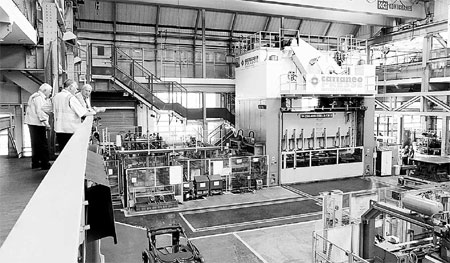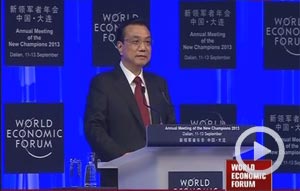Go-between helped to cement key tire deal
Updated: 2013-09-13 14:10
By Cecily Liu in London (China Daily)
|
||||||||
|
Shandong Yongtai Chemical Group's acquisition of Covpress Ltd has been welcomed by the local community. Provided to China Daily |

Chinese purchase of British firm built on respect and mutual trust, says UK MD
When Shandong Yongtai Chemical Group bought the British firm Covpress Ltd last month it marked one of China's biggest investments in Britain. It was help from a British partner that Yongtai has worked with for 10 years that cemented the deal.
The partner is TIA Treadsetters Ltd, a firm that first started buying tires from Yongtai in 2003 to supply its European customers.
Time and mutual respect strengthened trust between the two partners, so when TIA Treadsetters heard that strategic investors in the automotive supplier Covpress wanted to sell the company, it notified Yongtai.
"It was clear that Yongtai wanted to make an investment in the UK's car industry and, because of our longstanding relationship, there were discussions between us and Yongtai as to what that may be," says Trefor Jones, the managing director of TIA.
"Our chairman Peter Smith approached Yongtai's managing director, You Xiaoming, and said, 'Here is an opportunity too good to miss'," Jones says, emphasizing the importance of trust "between our two companies and ourselves personally" to make the deal possible.
What followed were 14 months of negotiations and other paperwork, throughout which TIA's team played a significant role, drawing on its knowledge of the industry and the legal framework in Britain.
The deal, sealed late last month, was valued at $45.3 million, with Yongtai taking a 70 percent stake and TIA the rest.
It was one of the biggest investments by Chinese companies in the automotive industry in Britain since Nanjing Automobile (Group) Corp rescued MG Rover Group in a $53 million takeover eight years ago.
The difference in the latest case is that Covpress is a successful company with a long and distinguished history despite several changes of ownership.
It was founded in 1890 as the Coventry Radiator and Presswork Co in the English Midlands, famous for its automotive industry. The firm traded under the Coventry Presswork banner following a management buyout in 1987 and was bought by the French group Lebranchu in 1991.
The French sold it following a management buy-in with GIL Investments Ltd, a British investment company primarily targeting manufacturing businesses, in 2004.
But early last year, GIL Investments said it wanted to sell Covpress because of internal changes at the company, Jones says.
By then, Covpress had grown into a globally renowned supplier of car body parts, with customers ranging from Jaguar Land Rover Automotive Plc to Nissan Motor Co and Renault SA and employing more than 450 staff in Britain.
Its connections with big carmakers was particularly attractive to Yongtai because it could help Covpress sell its tires in Europe and continue to supply them when they start to manufacture in China, Jones says.
This eastward shift in automotive manufacturing is spearheaded by companies such as JLR and General Motors Co, both of which are now building factories in China to supply the local market.
"Because major car companies are looking to manufacture in China, to supply them now would be a useful starting point," Jones says.
This process is like "getting the foot in the door" in Britain and on the continent first, he says. Although ownership of Covpress will not guarantee Yongtai the opportunity to supply tires for Covpress' current customers, he says, it does increase Yongtai's chances.
Jones says the combination of Yongtai's financial strength and TIA's expertise in the tire industry will present a persuasive case for automotive companies in Europe, in knowing that there is continuity of supply.
Yongtai, founded in 1996, quickly grew to have annual sales of about $4.15 billion and is considered to be the "equivalent of Michelin in China", as You puts it.
Also fast growing is TIA, which was founded in 1999 and has annual sales of about $131 million. Its focus is now the after-sales tire market, but Jones says TIA's management has plenty of expertise to offer in helping Yongtai supply the European original equipment manufacturing market.
"(European carmakers) want continuity. They see our growth and they think, 'We're not going to lose them in six months'," Jones says.
There may be other ways to make better use of Covpress' resources, including setting up a separate Covpress manufacturing center in China to supply the country's automotive industry, he says.
Because the deal has only just been completed, Jones says, Covpress' previous management will remain in charge until an operational review determines how to run the company. But current employees should not worry because Covpress will keep manufacturing in Britain and possibly employ more workers locally, he says.
Having TIA on board for the deal also provides an assurance that Covpress' distinguished British heritage will not be lost, he says, because TIA's management team fully understands Covpress' culture, heritage and technical expertise.
"We want to maintain Covpress' heritage. We will assist Yongtai and any Yongtai management sent over to the UK in understanding that culture and heritage," Jones says.
The purchase delighted Covpress' previous management. The Coventry Telegraph quoted Mike Gillett, the managing director, describing the deal as "a huge leap forward" for the business.
"This Chinese investment is great news for Covpress, its employees, customers and suppliers and also for Coventry and the West Midlands. The deal will enable the firm to meet its ambition of being a leading global supplier in partnership with its ambitious new owners," he says.
Gillett reckons Covpress' sales are on track to reach $138 million this year, compared with $103 million last year.
The deal also won support from the local community. In July the Lord Mayor of Coventry gave a civic reception to welcome Yongtai and other parties in the deal, which is a rare occasion reserved only for special guests.
"The welcome Mr You and our chairman received was splendid," Jones says. "If (the Coventry community) felt any distrust about the ambition of Yongtai or TIA, there would not have been a civic reception."
The trust Yongtai placed in TIA to lead negotiations in the Covpress deal facilitated smooth communication and provides a good lesson for future China outbound acquisitions, says Ed Dawes, a partner at the international law firm Squire Sanders.
Dawes, who led a Squire Sanders team of more than 20 lawyers giving advice on the deal, says TIA's understanding of Britain's business culture helped greatly in the negotiations.
"Shandong wisely allowed the UK party to lead the negotiations with the sellers, so the sellers felt they were having negotiations with a UK party," Dawes says. "They knew it was a Chinese buyer, of course, but they were fronting with a party that was familiar with the local culture."
Yongtai's strategy of gaining sales channels through Covpress is logical because Covpress has a sales team that has established a long working relationship with the procurement team of British and European carmakers, Dawes says.
So although Covpress was supplying car parts to these European carmakers and Yongtai wishes to supply them tires, the trust built up between Covpress and its customers would greatly help.
"Covpress' understanding of what the customer requires and its expertise of ensuring that the products delivered match these requirements is valuable," Dawes says.
Yongtai must consistently supply good quality tires to maintain the trust between Covpress and its existing customers, he says. He feels Yongtai will achieve this because it has already consistently supplied tires to the European automotive aftermarket through TIA.
Dawes says Yongtai understands that the value of Covpress is its quality product and customer loyalty. Future China outbound acquisitions can follow Yongtai's example to identify the true strengths of a target and protect these strengths.
"Where buyers can get things wrong is if they believe price is the only factor. Price is important, but other components of value are essential too," he says.
cecily.liu@chinadaily.com.cn
(China Daily USA 09/13/2013 page18)
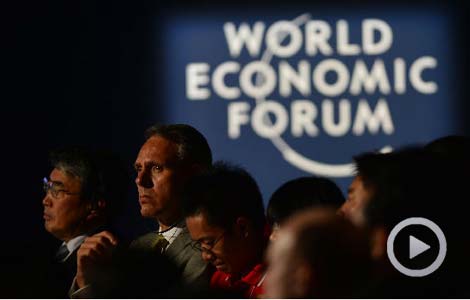
 Experts discuss Chinese premier's economic plan
Experts discuss Chinese premier's economic plan
 Voyager 1 has left solar system: NASA
Voyager 1 has left solar system: NASA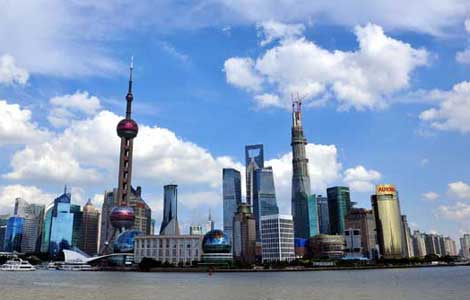
 Time of opportunities, challenges
Time of opportunities, challenges
 Plenty of fizz
Plenty of fizz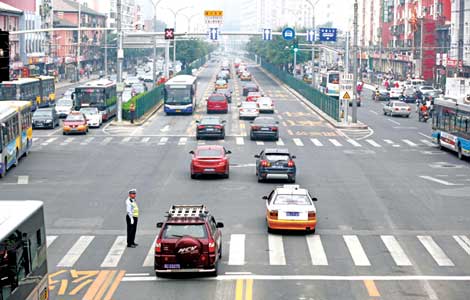
 Traffic about-face seeks to ease congestion
Traffic about-face seeks to ease congestion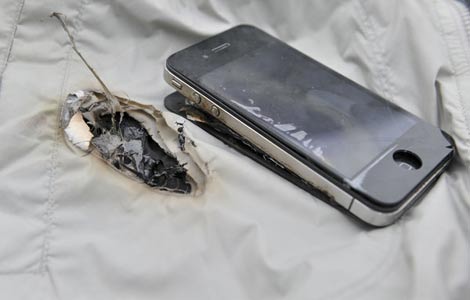
 Another iPhone4 explodes while charging
Another iPhone4 explodes while charging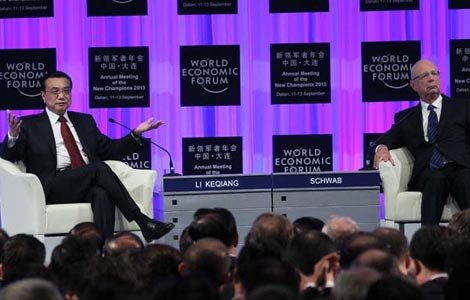
 Premier stresses transformation of the economy
Premier stresses transformation of the economy
 Soyuz capsule returns from space station
Soyuz capsule returns from space station
Most Viewed
Editor's Picks

|

|

|

|

|

|
Today's Top News
WB head to discuss climate in China visit
US moves against China firms criticized
3 sentenced to death for Xinjiang terror attack
Xi welcomes talks on Iran
Assad agrees to hand over chemical weapons
Time of opportunities, challenges
China sets caps for rare earths exploration
Ending non-tariff barriers benefits global economy
US Weekly

|

|
